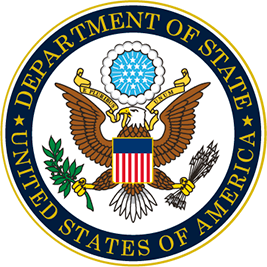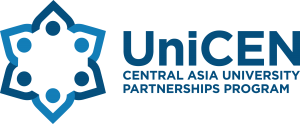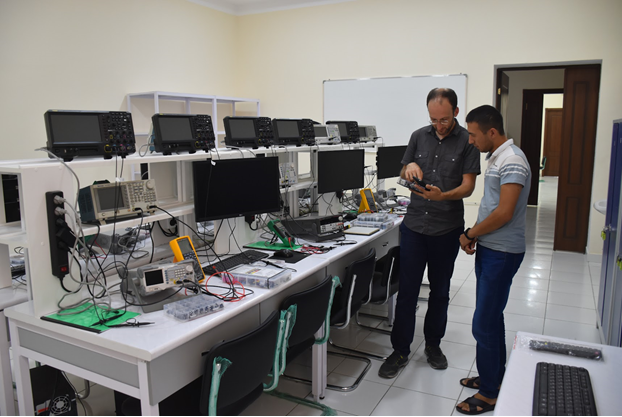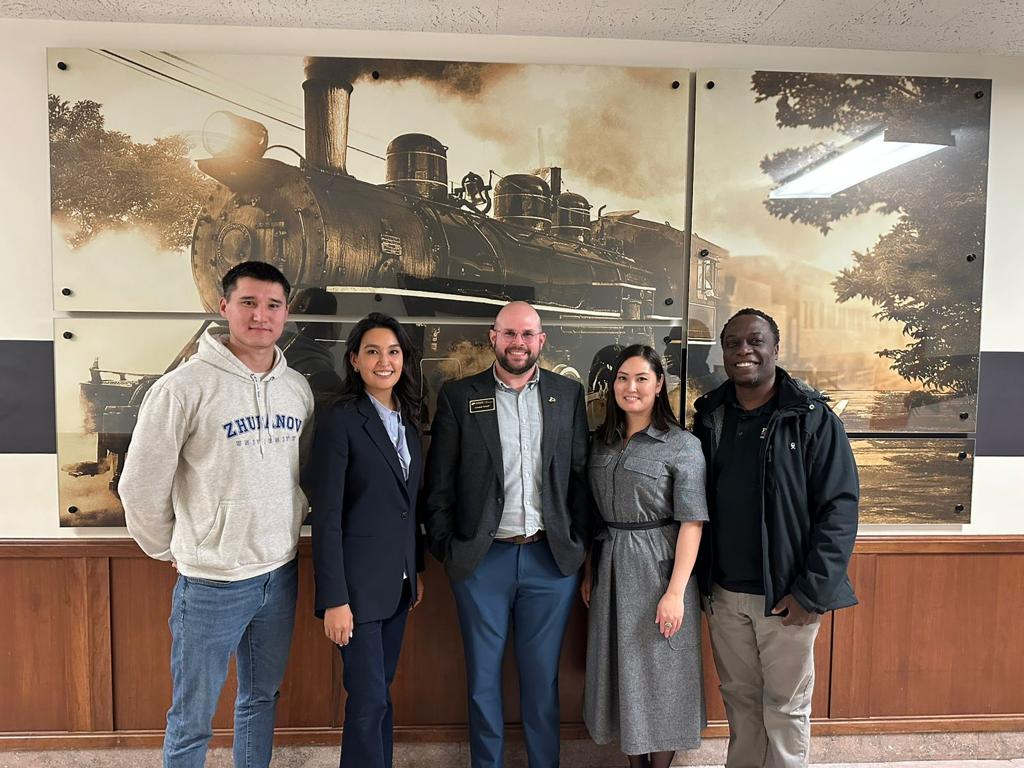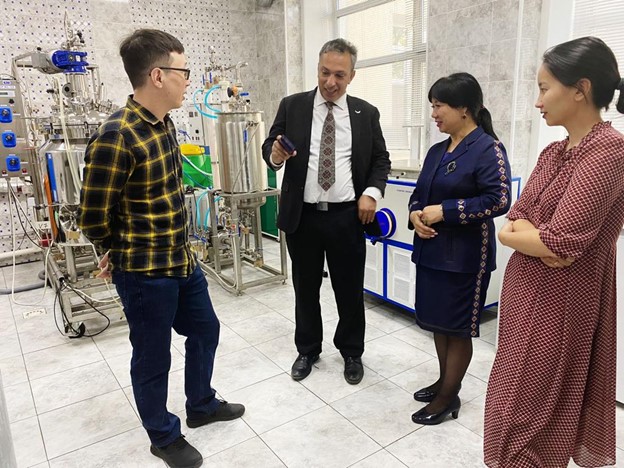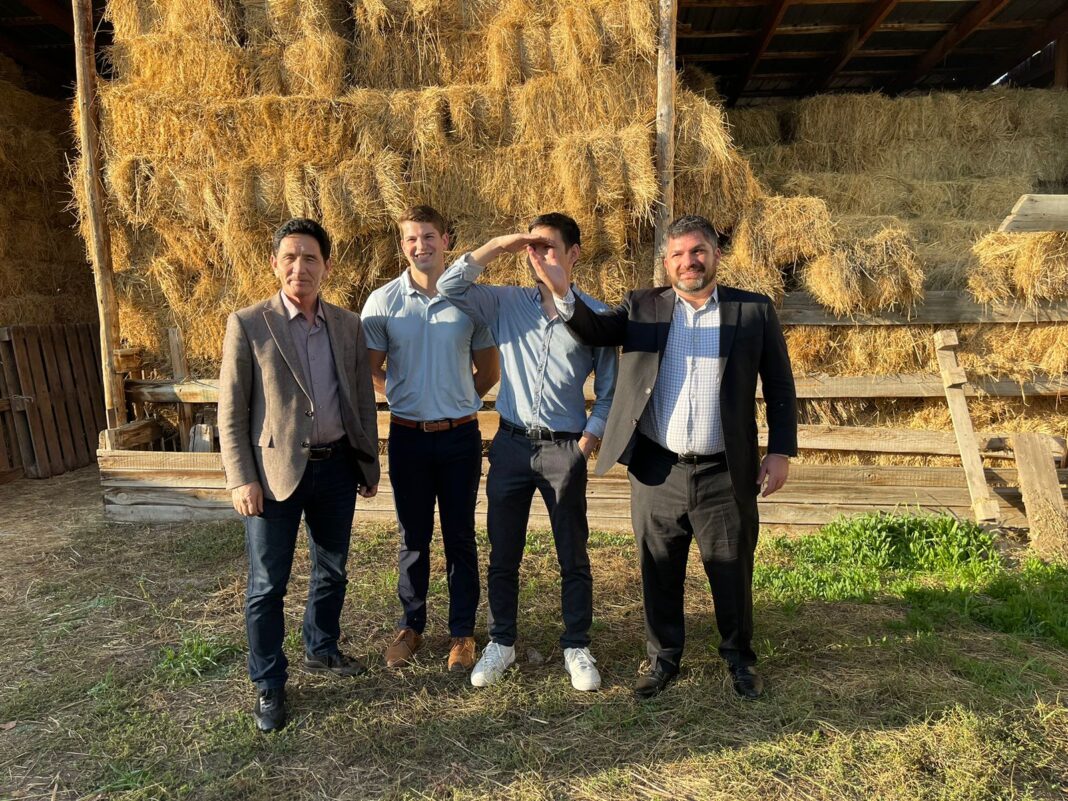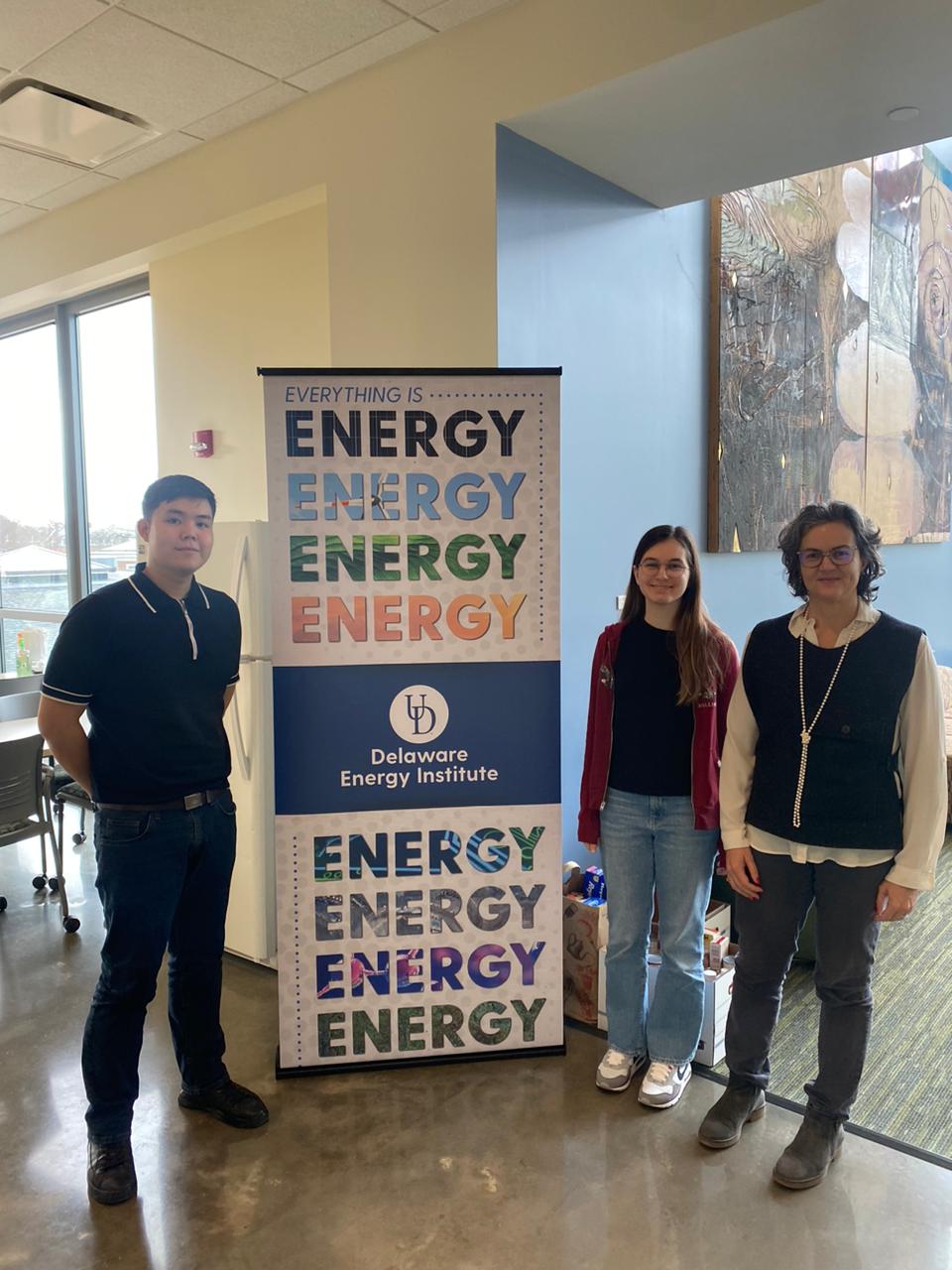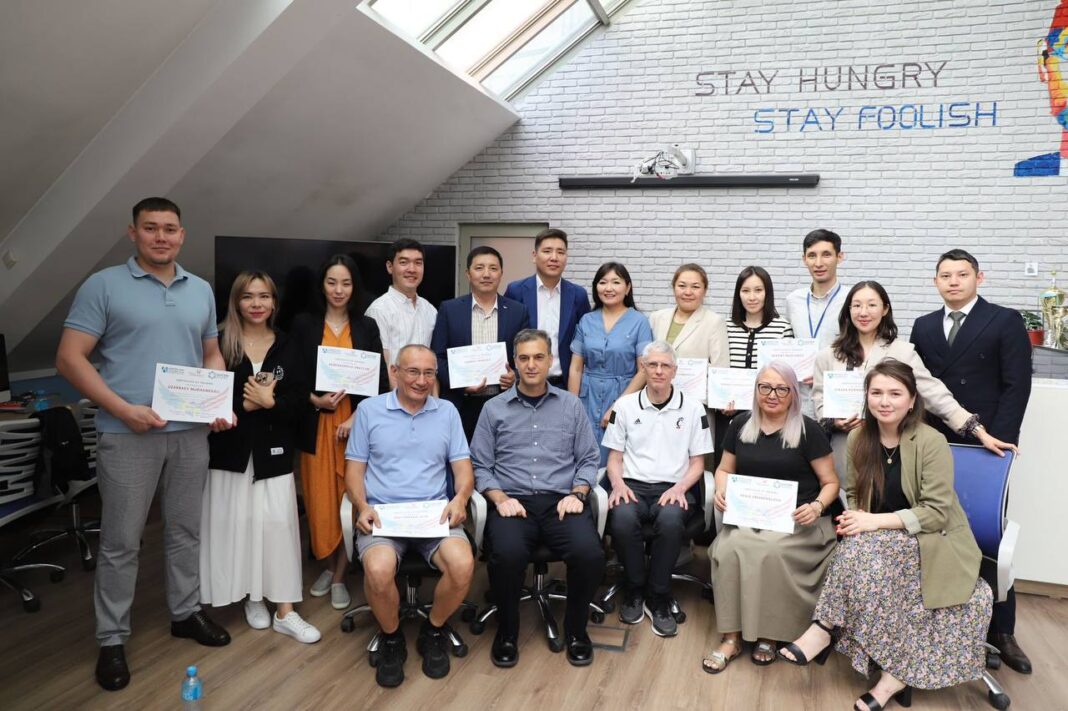Uzbekistan’s leadership has outlined a policy to expand project-based teaching methods, students’ entrepreneurship skills and transform universities into centers for the development of education and science. Through the Central Asia University Partnerships Program (UniCEN), administered by American Councils for International Education and funded by the U.S. State Department through the U.S. Embassy in Tashkent, professors from Massachusetts Institute of Technology and Samarkand State University are sharing effective methods for hands-on science education for their students.
Dr. Michael Short, Associate Professor of Nuclear Science and Engineering at MIT, and Dr. Akmal Safarov, researcher at the Nuclear Physics laboratory at Samarkand State, are committed to facilitating new hands-on experiences for students in the classroom. As a first step, the MIT professor sent Geiger counter kits for 20 students at Samarkand State to assemble. Using a mobile app and open-source mapping tools online, students in Uzbekistan collected everyday samples for analysis – from banana peels to toenails to archaeological samples.
MIT played a critical role in the development of laboratory scripts, faculty, and student guidebooks for Samarkand State University’s new innovative nuclear electronics laboratory, which was recently equipped and became fully operational. Approximately 170 bachelor’s and 20 master’s students are using the scripts to provide a hands-on approach to learn nuclear physics.
During a visit to SSU in August 2021, Professor Michael Short visited the newly established laboratory of nuclear electronics, supported by the International Atomic Energy Association (IAEA) and MIT through UniCEN. There, he demonstrated the operation of Geiger counters to lab staff members and doctoral students from the Department of Nuclear Science and Engineering, trained laboratory personnel and students, and helped to identify 3D scanning and printing equipment for expansion.

